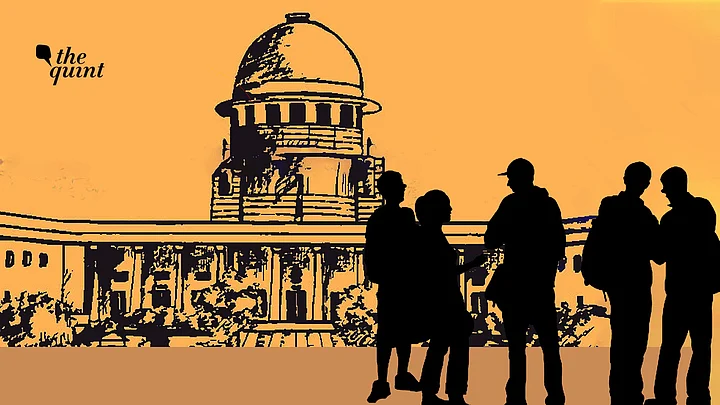The Supreme Court has adjourned till 10 August, a hearing over a bunch of petitions challenging the conduct of final-year exams, after the University Grants Commission (UGC) submitted an affidavit mentioning that all universities in the country must conduct final-year exams by the end of September 2020.
During the hearing, senior Advocate Abhishek Manu Singhvi, appearing for final-year law student Yash Dubey, said that UGC’s response has been “filed without any application of mind.” He also urged the court to look at the differences between the circulars issued by UGC on final-year exams, and reportedly stated that many universities lacked the infrastructure to conduct online exams.
The bench led by Justice Ashok Bhushan, which is hearing the batch of pleas contesting the UGC guidelines, reportedly said no interim order can be passed at this stage.
The bench reportedly directed that the parties should file affidavits by 7 August, and rejoinders by the following day. Solicitor General Tushar Mehta said that “students should continue to prepare and should not be under the impression that the Court has stayed the notification.”
In the affidavit submitted on Thursday, 30 July, the UGC had justified its guidelines prescribing final-year exams on the grounds that students will be given an opportunity to appear for ‘special exams’if they are unable to write the ones scheduled in September.
The UGC also said that it was working in the best interests of students.
“UGC has issued such guidelines to protect the academic future of students across the country which will be irreparably damaged if final year or terminal semester examinations are not held, while also keeping in mind their health & safety.”UGC Affidavit
However, the UGC’s response was met with a stern rejoinder from Advocate Alakh Alok Srivastava, who has been representing a group of 30 students from across the country, who have asked for exams to be replaced by internal assessment.
In the rejoinder, the petitioners asked “who will compensate the petitioners for the loss of job opportunities or admission deadlines” as exams that are usually completed by the end of June will now begin towards the end of September.
Citing 52,000 fresh coronavirus cases recorded on Thursday, the flood situation in Bihar Assam and other northeastern states, the lack of internet in remote corners, the petitioners say that the UGC has completely failed to take account of problems in the state.
Who are the petitioners?
- Yuva Sena - The youth wing of Maharashtra powerhouse Shiv Sena has filed a petition on the directions of its leader Aditya Thackeray, challenging the guidelines of the UGC and requesting the apex court that each university be allowed to chart out its own plan of action with regard to terminal semester/final-year examinations depending on the conditions in their states.
- Students Across India - Around 30 students from across the country, including a COVID-19-positive student, have moved the Supreme Court asking that final-year students be considered at par with CBSE, ICSE & NIOS and that results be declared on the basis of internal assessment.
- Yash Dubey - A final-year law student in Bhopal, Dubey has argued that the revised UGC guidelines are in violation of the fundamental rights enshrined under Article 14 (Right to Equality) and Article 21 (Right to Life and Personal Liberty) of the Constitution of India, they undermine the health, safety, fair and equal opportunity for the students.
What do revised UGC guidelines say?
According to the revised UGC guidelines, final-year university examinations may be conducted by the end of September, either online, offline or through a combination of both.
The guidelines also say that in case a student is unable to write final-year exams, they can appear for a special examination at a later period, as and when feasible.
For students of the first and second semester, there have been no change in guidelines. This means that universities can evaluate students on the basis of internal assessment and marks scored in previous semesters, if they are unable to conduct exams due to the prevailing situation.
(With inputs from Live Law)
(At The Quint, we question everything. Play an active role in shaping our journalism by becoming a member today.)
